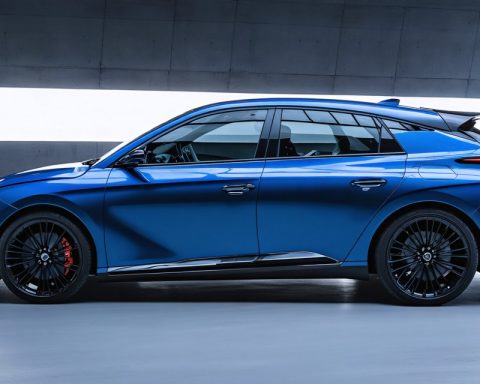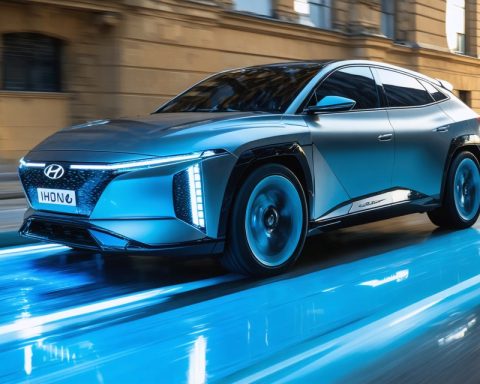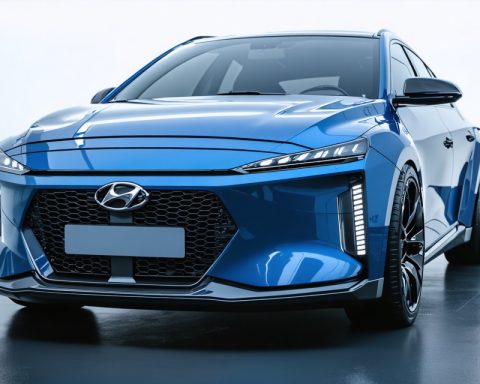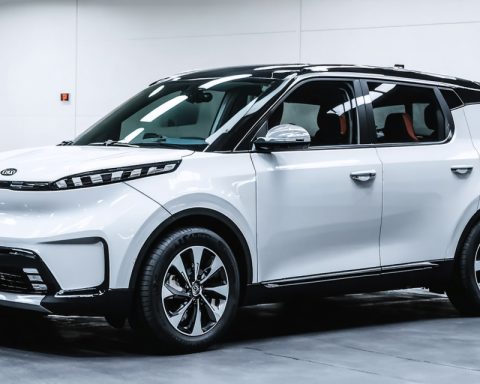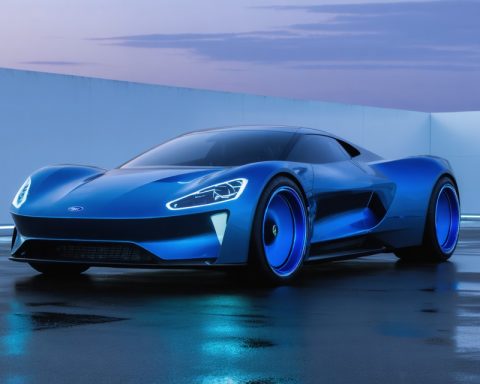- Hyundai Motor Group opened a new manufacturing facility in Georgia focused on hybrid production, not just electric vehicles (EVs).
- The plant represents advanced manufacturing, with technologies like Boston Dynamics robots, signifying Hyundai’s technological leap.
- Shifts in the EV market and political landscape, such as reduced federal incentives, influence Hyundai’s hybrid strategy.
- Despite adjustments, Hyundai remains committed to long-term electrification strategies that respond to market demands.
- The auto industry, from Ford to Volvo, is recalibrating EV ambitions, making hybrids a practical intermediary step.
- The industry’s electrification journey is gradual, requiring a strategic balance of innovation, market trends, and policy alignment.
Amid much fanfare, Hyundai Motor Group recently unveiled its state-of-the-art manufacturing facility near Savannah, Georgia. The plant, initially heralded as a beacon of the electric vehicle (EV) revolution, is now steering toward a more hybrid-centric path. Against the backdrop of gleaming machinery and robotic precision, a Boston Dynamics robot “dog” attentively examined vehicle frames, representing Hyundai’s leap into advanced manufacturing. However, strikingly absent from the grand opening speeches were any mentions of “electric” vehicles. Instead, Hyundai’s executives and state officials focused on the influx of jobs, the infusion of billions into the local economy, and the plant’s cutting-edge technologies.
Once envisioned as an exclusive EV hub, the plant’s strategy has shifted gears. Hyundai’s decision to incorporate hybrid production signals a response to a more tepid-than-expected EV market growth. As companies across the auto industry, from Ford to Volvo, recalibrate their electric aspirations, hybrids are emerging as the cautious frontrunner.
The downturn in the predicted rapid embrace of fully electric vehicles isn’t just shaping corporate roadmaps; it’s also timed with a changing political landscape. The federal pivot, marked by the Trump-era rollback of EV incentives and regulations, casts a shadow over America’s green automotive ambitions. Senator Jon Ossoff of Georgia voiced concerns over this regulatory retreat, alluding to its potential to stifle EV market maturation and, by extension, Georgia’s burgeoning role in this industry.
Hyundai, however, asserts its motivations remain untethered to fluctuating government incentives, adamantly focusing on market demands and long-term strategies. Nevertheless, the synergy—or lack thereof—between public policy and corporate planning can unmistakably influence consumer trends. Tax incentives and accessible charging infrastructure are potent catalysts for broader EV adoption.
While the auto industry cautiously throttles back on some electrification plans, it remains committed to electrified futures. The allure of EVs—quiet operation, exhilarating drive experiences, and reduced maintenance costs—continues to capture consumer imagination. Yet, the global leans toward hybrids reflect a pragmatic acknowledgment: the road to widespread electrification is winding and requires patience.
As Hyundai settles into this latest chapter in Georgia, the silence around EVs at its premiere signals a nuanced pivot, one where hybrids provide the bridge to a fully electric future. The journey to electrification is incremental, reflective, and undeniably shaping the lanes automakers navigate today.
The Real Story Behind Hyundai’s Hybrid Shift: What’s Next for the EV Industry?
Insights into Hyundai’s Strategic Pivot
Hyundai’s new manufacturing facility in Savannah, Georgia, stands as a testament to the evolving dynamics within the automotive sector. Originally planned as an exclusive EV hub, Hyundai’s decision to broaden its focus to hybrid production marks a strategic maneuver in response to shifting market realities.
Why the Shift to Hybrids?
1. Market Realities: The transition to hybrid vehicles underscores a broader industry trend reflecting consumer hesitancy toward fully electric vehicles (EVs). Despite initial excitement, demand has not met expectations, prompting companies like Hyundai to hedge their bets with hybrid options that offer a middle ground between traditional combustion engines and all-electric drivetrains.
2. Regulatory Environment: The American political landscape has seen considerable shifts, particularly with the rollback of EV incentives during the Trump administration. Such changes influence corporate strategies, as tax incentives and infrastructure developments play a crucial role in EV adoption.
3. Consumer Preferences: Hybrids appeal to consumers wary of the limitations of EVs, such as range anxiety and charging infrastructure scarcity. Offering the familiarity of a gasoline engine with the efficiencies of electric assistance, hybrids serve as a transitional technology.
Actionable Insights on Hybrid and EV Adoption
1. Evaluate Options: For consumers interested in hybrid or electric vehicles, start by assessing your driving habits and needs. Consider the availability of charging stations and the potential long-term savings on fuel costs.
2. Incentives Exploration: Investigate federal and state incentives for purchasing hybrid or electric vehicles. While these may change, they currently offer significant financial benefits.
3. Innovation Watch: Stay informed about advancements in battery technology and charging infrastructure. These will significantly influence the viability and appeal of EVs in the coming years.
Industry and Consumer Impact
This shift impacts not only corporate strategies but also affects the broader market. As more manufacturers incorporate hybrid models, consumers gain a wider selection, potentially accelerating the overall shift towards greener technologies.
Real-World Use Cases
– Urban Commuters: Hybrids provide an excellent option for those facing shorter commutes, with potential fuel savings and reduced emissions.
– Fleet Operators: Businesses can reduce operational costs and their carbon footprint through hybrid fleet integration.
Looking Ahead: Market Forecast & Trends
The automotive industry is likely to see continued emphasis on hybrid models over the next decade. Analysts predict gradual growth in EV market share as infrastructure and technology develop. According to the International Energy Agency, electric car sales are projected to grow as battery prices fall and charging networks expand.
Conclusion: Strategic Recommendations
For Hyundai and other manufacturers, the key lies in balancing immediate market demands with long-term sustainability goals. Investing in hybrid models can serve as a bridge, supporting incremental electrification without alienating consumers.
For consumers, the best approach is to stay informed and weigh current options against future developments. Opting for hybrids now can ease the transition to full electrics later, as technology and infrastructure improve.
Discover more about Hyundai’s innovations by visiting their official site.



